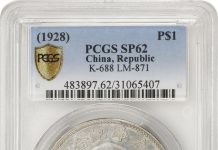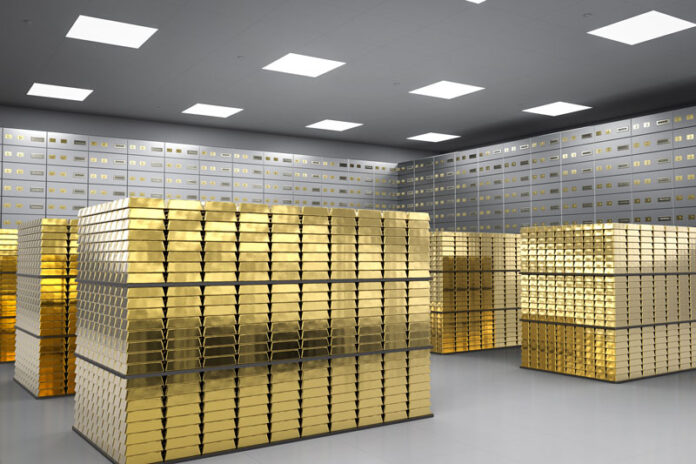
How to buy bullion and properly store it has been a subject of recent scrutiny. Here are tips for safely storing and buying bullion and coins including depository dos and donts.
There was a time when the bullion industry spawned relatively few colorful news stories, but things have changed, and drama from the world of bullion has lately been spilling into the general media.
Fraud Alleged
Robert Higgins, the owner of Argent Asset Group (LLC) and First State Depository Company, LLC, was embroiled in a media firestorm when the Commodity Futures Trading Commission (CFTC) alleged fraud against him and his companies in connection with a multimillion-dollar scheme involving hundreds of customers.
The civil suit, filed in October 2022, claimed that since 2014 Argent and First State Depository, operating as a single enterprise under the tutelage of Higgins, fraudulently solicited and misappropriated at least $7 million from at least 200 customers with a silver-leasing plan known as the Maximus Program. The CFTC asserts the Maximus Program promised payments to enrolled customers who leased silver to Argent and that customers were informed silver would be acquired and insured on their behalf.
However, the suit asserts that the defendants misappropriated the customers’ assets and misled clients who attempted to transfer their holdings to other depositories and failed to provide the insurance coverage promised. The CFTC claims Higgins is at least indirectly responsible, given his role as the operator of Argent and First State Depository. And that’s not all…
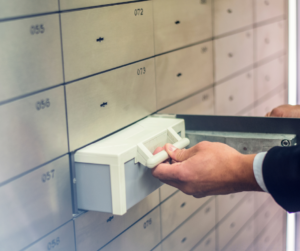 Private Safety Deposit Boxes Raided
Private Safety Deposit Boxes Raided
On the West Coast came another bombshell when U.S. Private Vaults in Beverly Hills, California, was raided by FBI agents in March 2021. The storefront safety-deposit company operated on a system where customers could rent boxes on an anonymous basis. This raised concerns from authorities that “only those who wish to hide their wealth from the DEA, IRS, or creditors would” anonymously rent boxes from U.S. Private Vaults, as wrote FBI agent Lynne Zellhart in an affidavit.
The search was conducted based on combing for criminal evidence against U.S. Private Vaults, which in 2022 pled guilty to laundering drug money. However, the warrant that precipitated the forfeitures never mentioned anything about seizing assets from unnamed box renters. In total, the FBI raided more than 700 boxes and raided more than $86 million in rare coins, silver and gold bullion, watches and jewelry, and at least one set of cremated remains.
“The government’s indiscriminate seizure of hundreds of safe-deposit boxes should give all Americans pause,” said attorney Robert Frommer, representing a class of approximately 400 private safe-deposit box renters challenging the government’s search and seizure of their property. “When you rent a private space like a safe-deposit box or a storage unit, that space is yours. What the government did here is like breaking into every apartment unit in a building because it suspected the landlord of dealing drugs. The Fourth Amendment means that the government shouldn’t be able to break into that space unless it has evidence that you did something wrong. If courts bless what happened at U.S. Private Vaults, it means all Americans should think twice before entrusting others with their possessions.”
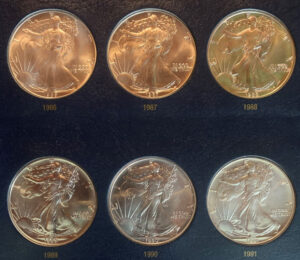
COURTESY JOSHUA MCMORROW-HERNANDEZ;ADOBE STOCK / KARANDAEV
Tips On Safely Storing Coins & Bullion
“I don’t like private depositories, I never considered them safe, and I don’t recommend them,” said numismatic and bullion expert Scott A. Travers. “More and more people are stepping forward with missing coins, missing bullion and missing property,” warned Travers, who wants people to know there is a clear distinction between private depositories – which are essentially warehouses – and safety-deposit boxes at a bank. “That doesn’t mean there aren’t multiple depositories that are operated well and run by reputable people. But I strongly dislike depositories.”
Having heard too many horror stories from clients and colleagues, Travers takes a vigilant approach when storing any assets, even in one’s home. “When storing your stuff at home, use a UL-rated safe,” he advised. His favorite vaults are ones that are rated TXTL-60 by UL, explosion-resistant safes that can weigh more than 5,000 pounds, withstand an hour of virtually every kind of intrusion attempt and can often insure beyond $10 million.
Storage Recommendations
Travers recommends minimizing risk exposure by spreading out assets, splitting them between home storage and safety-deposit boxes at a secure bank. “Maybe half stays at home and half goes in a bank safety-deposit box that is itself located within a vault.” Travers is also a strong proponent of insurance. “The right plan can offer protection to those who lose their goods in depositories or safe deposit boxes.”
There is no one-size-fits-all solution. “Think about location. Don’t consider any safety deposit boxes that might be located in the basement of a bank near a body of water, and think twice before choosing a bank in an area prone to forest fires or other natural disasters. Consider the safety of the neighborhood and security of the building. How safe is your own home? Are you in a high-crime area or situated in proximity to anything that could pose risks to your goods?”
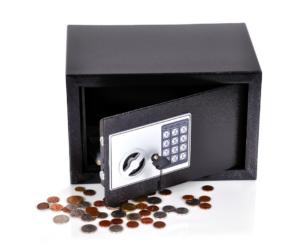 What if You Need a Bullion Depository?
What if You Need a Bullion Depository?
Some may find a depository necessary, such as in cases where they don’t feel safe keeping their bullion at home, have too many valuables to practically hold on their own, or if they frequently relocate – think military personnel and traveling businesspersons. Then there are cases where someone needs a registered custodian to safeguard their silver or gold, such as those who invest bullion in an individual retirement account (IRA), which forbids physically holding the enrolled precious metals at home.
“Depositories are a safe and secure method of storing precious metals for most people,” said bullion expert and former APMEX Vice President Michael Garofalo, noting home safes and bank safety-deposit boxes are good avenues but deal their risks. “A home safe is somewhat secure, but fire, floods or other natural disasters put your assets at risk. Anyone who sees your home safe will also assume it’s full of valuables otherwise why would you have it?”
Safety Deposit Boxes
Then there are the growing number of issues with safety-deposit boxes. “Many banks are eliminating safedeposit boxes and using the space for other more cost-effective ventures,” he said, adding, “If your local bank does still offer safe-deposit boxes, you have annual box rental fees of several hundred dollars or more. Additionally, banks have rules such as not storing cash in safe deposit boxes, and some do not want bullion stored in their boxes.”
Bullion Depositories
What then? “The other option is to store your precious metals in a depository built exactly for that purpose. The costs are usually minimal, between 50 and 150 basis points (half of 1% to 1.5%) of the value of the assets.” Garofalo added, “Generally speaking, the more precious metals that you own, the greater the advantage using a depository becomes.”
Another reason to consider moving bullion into a depository? Possible sales tax benefits. “If you find a depository in a sales-tax-free state, and you can buy precious metals and have them shipped directly to the depository, you can legally save on the costs by not taking possession of these items and having them shipped directly to the depository.” Garofalo advised, “check with your tax accountant to make certain that is appropriate and applicable to your situation.”
Everett Millman, an acclaimed bullion expert with Gainesville Coins near Tampa, Florida, explained the benefits of using a depository become all the riper for those who hold large amounts of bullion. “The more and more precious metal you own, the more it makes sense to choose offsite storage. Doing so eliminates the risk or liability of theft at your home, and every legitimate depository fully insures the assets in their custody. So, removing the real risk of your residence being burglarized is one motivating factor.”
When it comes to precious metals IRAs, the option of a bullion depository goes from being an optional avenue to a mandatory solution. “Vault storage is also a requirement if you want to include your metals in an IRA.”
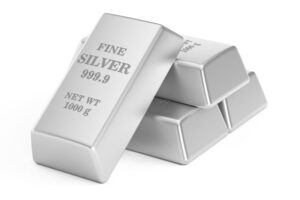
Types of Depository Storage
Depository services range the gamut depending on the needs and desires of the customer. Millman explained there are three different types of bullion-storage options at depositories, including segregated storage, allocated storage and unallocated storage. “With segregated storage, you receive the exact same assets you deposited back whenever you choose to withdraw your bullion. None of the deposits are pooled or co-mingled.” This is the ideal option for someone who wishes to store specific specimens in a depository and receive those same pieces back.
“With an allocated storage account, the depositor is only entitled to the same quantity and quality of metals when they take delivery. In that scenario, they are only guaranteed to receive equivalent pieces of bullion, such as getting a 10-ounce silver bar instead of the original deposit of 10 separate one-ounce silver coins – so long as the products are the same purity.” That arrangement works well for someone who is interested in transacting certain amounts of metal and is not tied to owning specific coins, medals or bars.
“Even worse is a third possible storage option, which is an unallocated account wherein your claim on the metals deposited is given less priority than the depository’s claim of custody. In other words, your unallocated assets could be liquidated if the company goes bankrupt.”
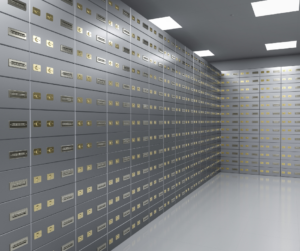 Doing Due Diligence
Doing Due Diligence
There are factors to consider when shopping for the right bullion depository. “The biggest factors in finding the right depository are a reputation for trust and a long track record of being in business,” said Millman, who was careful to mention that the involvement of any third-party storage firm entails some degree of unavoidable risk.
“Carefully read the entire storage agreement before signing. Make sure you understand the terms and conditions of this contract, including the size and frequency of storage fees. The storage contract should also indicate if the assets will be segregated, allocated or unallocated.”
Millman also cautioned to avoid companies that advertise potentially tempting but fraudulent claims. “Any storage facility that advertises itself as a tax shelter, or a way to shield an investor’s assets from being reported to the IRS is a major red flag.”
Garofalo impelled those in the market for a depository to ask questions about the security of the vaults they use and the technology they are using to protect their assets. “Don’t expect them to tell you all their secrets, but most depositories offer images of three-foot-thick steel doors protected by great security technology – you should ask about that.” Other questions to ask include the cost to withdraw assets. “Some depositories have costs that are steep, as they don’t want you to withdraw assets too often.”
As with shopping around for any business, check on complaints that may have been lodged with the local Better Business Bureau. “Depositories should have great reputations, but remember, you can’t please everyone all the time.”
This article about coin collecting storage previously appeared in COINage magazine. To subscribe click here. Article by Mike Garofalo.

